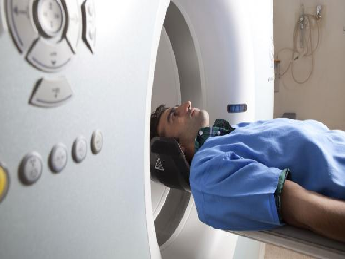The initial phase of esophageal cancer is difficult for doctors to spot, making the disease often (to) let is detected. A new detection method of TU Eindhoven should change that.

Because now often late esophageal cancer is detected, the survival rate is small. In an advanced stage is twenty percent of patients still alive a year after diagnosis. After three years is that less than five percent. To detect the disease earlier, developed the TU Eindhoven together with Catharina hospital Eindhoven a computer technique that esophageal photos searches for signs of esophageal cancer.
The computer should go do that so well, that it can see the cancer rather than the human eye of the doctor. The first results are particularly good: the computer recognizes early cancer almost as good as the top specialists in this area, where there are but a handful of his in Netherlands. The results are described in the July issue of the scientific journal Endoscopy.
Barrett's esophagus The method is intended for research in patients with so-called ' Barrett's esophagus.
These people have a greater chance to get esophageal cancer than other people because their esophagus is affected by years of regurgitation and heartburn. Some five percent of adults in Netherlands has a Barrett's esophagus. Of them develops three to five percent actually esophageal cancer.
Netherlands get 2500 people annually in esophageal cancer. The disease is more common in men than in women. The number of patients with esophageal cancer is increased in recent years.
Much less drastic The computer analysis should eventually become available in all hospitals, to help doctors identify the earliest stages of cancer. The rate of on-time would be recognized and treated cancer towards the 100%. And that may be many patients a surgical procedure, in which a part of esophagus is removed, save. Late discovery, this is often inevitable.
Treatment of early cancer is much less invasive for patients and much cheaper. The software should also in the future are going to be used for the detection of other tumors such as colon cancer. Before the new technique is applied, the software should be further improved. It probably takes five to ten years before the wide can be entered.
By Editorial RTL News: Photo: RTL News

Reactie plaatsen
Reacties